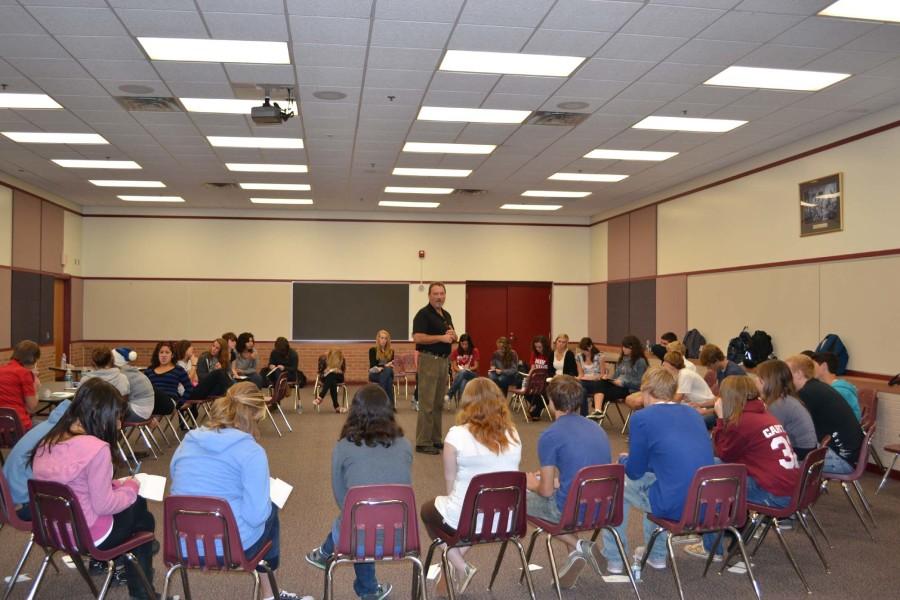Responsibility, willingness and confidence are just some of the traits that compose a talented student’s mind. Some students lack these traits in high school, setting them off on the wrong foot to their future. That’s where the MHS mentors come in.
The mentoring program is based on social and academic success in the future. Its main goal is to acclimate the students into the high school setting, making them feel comfortable and accepted, allowing them to put more effort into schoolwork.
The mentees are taught time management and organization skills that can be put to use in and out of the classroom.
“Peer-to-peer mentoring hopes to build a community of students who feel responsible and act in the best interest of others,” said Dean of Students Ed Collins.
Incoming freshmen often find it hard to adapt to a new school, new classmates and new teachers so quickly. In order for the mentees to connect to their mentors, the age gap is lessened.
The mentoring program provides a ninth grader with an upperclassman that is there to answer questions and offer support.
“A lot of freshmen don’t cope well with the change between middle and high school,” said senior mentor, Shane McClellan, who has been a part of the organization since its initiation. “Everybody has to be here, we’re trying to help them enjoy it.”
The program began last February and continues to be influential this year as well.
Mentors are chosen in multiple ways, either by letters of recommendation from teachers or students recruiting students.
“It isn’t about choosing your best friend, “ said Collins, “but a new mentor that would really have a lot to offer to the program.”
Mentors and administrators met for a training session on Sept. 28th for three hours to train new members of the organization.
Forty new members were brought to the LGI to learn the techniques and skills it takes to make a positive influence on their mentee.
Collins led a group activity that illustrated the importance of taking charge and being a leader. Pieces of paper were distributed to the majority of the students.
The task was to build “a bridge” to the opposite side of the room with one person standing on each piece.
One student took the initiative to form a strategy and it resulted in the success of the task.
“Training sessions are always active; we discuss new activities, fund raisers… It’s a hands-on experience,” said Collins.
Once the new mentors are trained, they are assigned to a struggling freshman to meet with on a weekly basis.
During lunch, before or after school, or even outside of school mentors and mentees come together to catch up on social and academic progression.
Having a mentor provides more than academic success. It allows students to learn from their older peers and steer them away from making bad decisions in their first two years at Milford.
MHS Mentoring Program encourages struggling students
Tara Buchanan, Staff Writer
November 18, 2011
Mr. Collins shows new mentors the ropes on how to relate to mentees during a training session in the LGI on Sept. 28. These sessions help to make the mentors more comfortable intrsutrcting the mentees.
